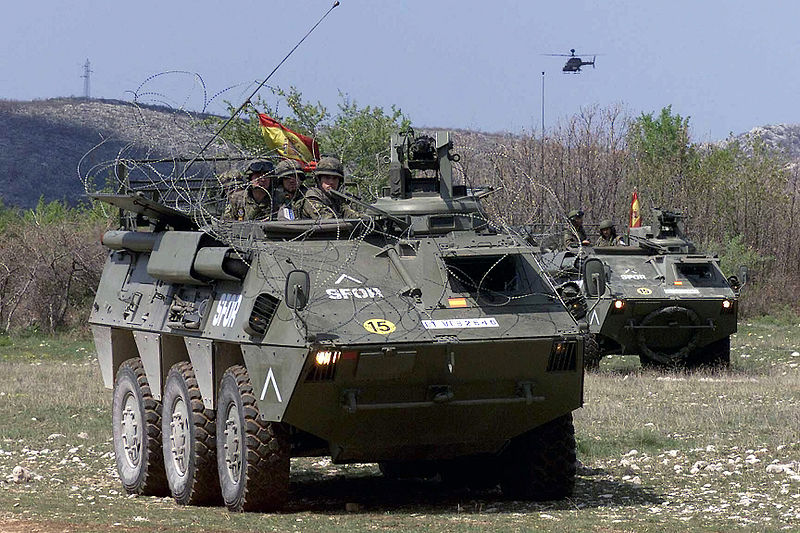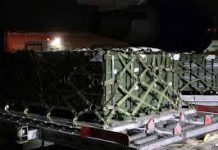
With recent developments in the military industrial field, Spain is at the crossroads. After long having relied on its national forces to ensure its defense, Spain has seen its building capacities dwindle, as almost everywhere else in Europe. Fortunately, US General Dynamics has reinvigorated the industry by setting up a factory in the Iberian country. But, as welcome as the nudge may be, the future may lie elsewhere.
The Spanish challenge, despite Madrid’s best efforts
Spain is one of Europe’s (and NATO’s) good lads – one of those countries which commit a reasonable share of their budget to defense matters, usually considered around 3%, and doesn’t try to freeload. In truth, barely any European country reaches that threshold, so the Spanish 1 or 2% is enough to place it among the meaningful players on the European Defense scene. Despite frictions, no one doubts that Madrid is at least trying, as reported by the Defense Post: “According to NATO, Spain is estimated to have used 0.93 percent of its GDP for military spending in 2018. But like other members of the military alliance, it has promised to devote at least 2 percent of its GDP to defence by 2024 as the United States complains it takes on too much of NATO’s budget. In January 2018, when the conservatives were in power, Spain had announced it intended to increase by 73 percent its military spending over seven years.” However, most European countries have been encountering increasing difficulties in launching military programs, regardless of their political commitment, due to the ever-rising technological challenge they represent. Slowly, many European firms have changed their position on the market, giving up on entire military programs, and simply contributing sub-systems to French or German integrators – which lead the market today. Spain has resisted longer than most, but is now about to enter the same phase, in which it must think its defense with European goggles, not Spanish ones.
The American savior
Spain has an important place within NATO, both because of its important geographical position (with access to the Atlantic, the Mediterranean, and more importantly, the passage between the two), and because of its sizable contribution to European defense matters. Spain joined NATO relatively late, in 1982, and as such, has had less time to harmonize its processes and equipment with NATO standards. It was therefore not completely out of kindness that the United States supported the idea of a General Dynamics factory setting up in Santa Barbara and headquarters for the entire European market in Madrid. Through this partnership, Spain was able to boost its sluggish industry, re-equip its forces with new top-of-the-line Piranha V Infantry Fighting Vehicles, and tighten its NATO integration. In 2017, defense specialist Esteban Villarejo wrote: “Spain plans to acquire 348 “Piranha 5” 8×8 wheeled armored fighting vehicles from General Dynamics European Land Systems (GDELS) in a first phase of purchase, Secretary of State of Defense Vicente Conde told the national Congress.
He also added that in other phases of acquisition the total number of units for the Spanish Army could be around 1,000.” The United States, on the other hand, was able to spearhead Europe with one of its most commercially successful companies. The deal was therefore sweet for both parties, but a renewal shouldn’t be expected. The US got what it wanted, and further assistance seems unlikely, given the current atmosphere. So what next?
Two leaders to join: which one?
As Donald Trump was pounding the table and rocking the boat, an additional disrupting factor kicked in: Brexit. Seeing what rough seas they were entering, European nations took matters in hand to achieve what had been wishful thinking for decades: a European defense, ranging from industrial partnerships all the way to integrated military operations. Aware that every political attempt had failed, President Macron and Bundeskanzlerin Merkel opted for the alternate method: from the ground up. Analyst Pierre Haroche writes: “How did the Commission manage to take the lead on a defence policy? It used an indirect strategy, by relying on the connection between defence issues and its own economic competences. Formally, the EDF is not a defence policy but a research and industrial policy. Since research and industry are traditional single-market-related policy areas in which the Commission has well-established competences, the EDF governance is supranational, not intergovernmental.” The industrial power of the two nations has therefore been used as the platform to European integration, with successful results so far. Germany and France are the only two remaining countries on the continent with enough industrial power to oversee military programs completely. In the future, military industries from both countries will mobilize firms from other countries to keep the entire industry going, but will oversee the integration of the project, while optimizing development and creating synergies. The new system is already in place, with Belgium’s new CAMO vehicle program (run by French Nexter) deemed a success. Germany is somewhat running behind, and needs more time to sort out the industrial problems it has encountered in recent years. The timid stance of Germany on the international scene has come at a cost, as years without partaking significantly to inter-ally operations has badly degraded Germany’s operational capacities. It also needs to build trust with its European prospects – its ambiguous relations to Turkey and Russia are giving cold feet to many Central European countries which will prefer turning to France, for the time being. Germany could possibly find itself pitched into competition with the United Kingdom, which is a sizable contender and with her participation in NATO missions.
England will need a few more years to come to terms with the European destiny, and still sees its military standing as a stand-alone business, despite NATO membership. But Spain has already started its transformation and will find in the European partnership the same benefits it found in the American one: industrial activity and increased sovereignty. Only for good, this time.

My father was a naval officer, and one of my uncles died at Dunkirk in 1940. That doesn’t immediately give you any expertise on military matters, but I also studied international relations and geopolitics. I have worked in think-tanks specialising more in defence and security issues. I take a professional break for family reasons and I spend some time writing about my professional subjects.




